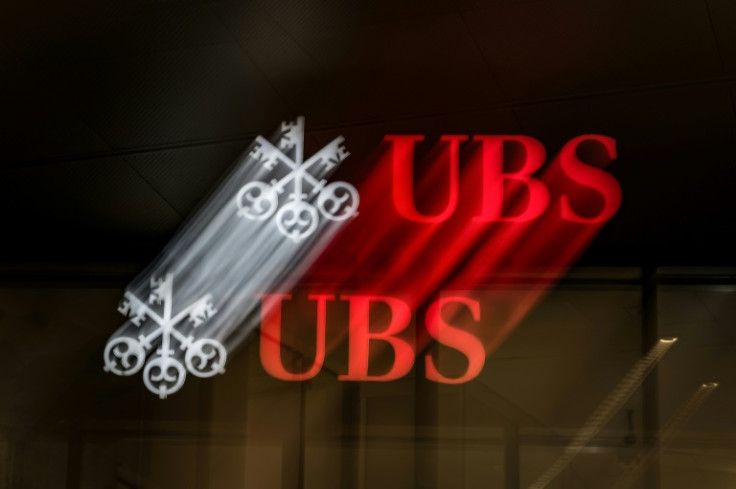UBS To Reward Shareholders As Credit Suisse-linked Losses Narrow

Swiss banking giant UBS said Tuesday it would hand shareholders up to $1 billion in share buybacks as it posted a smaller-than-expected quarterly loss stemming from the costs of absorbing fallen rival Credit Suisse.
Presenting its fourth-quarter and full-year earnings, the bank reported a net loss of $279 million in the final three months of 2023 -- far less than the nearly $500 million analysts had been bracing for.
The result followed a bigger, $785 million loss in the third quarter.
For the full year, UBS bagged a net profit of $29 billion in 2023.
The exceptional gain stemmed from the difference between the value of the assets obtained in the acquisition of Credit Suisse and the discount price of $3.25 billion it paid to buy then Switzerland's second biggest bank, which was on the verge of bankruptcy.
UBS chief Sergio Ermotti hailed the group's position nearly a year after it was strongarmed by Swiss authorities into a takeover aimed at averting a wider financial crisis.
"2023 was a defining year in UBS's history with the acquisition of Credit Suisse," Ermotti said in the earnings statement.
"Thanks to the exceptional efforts of all of our colleagues, we stabilized the franchise and have made tremendous progress in the integration."
The bank, which suspended share repurchases after the acquisition, said it plans to reinstate them as soon as the merger is fully finalized in coming months, with plans to buy back up to $1-billion-worth by the end of this year.
It added that it would raise the dividend it dishes out to shareholders to $0.70 per share for 2023, up from $0.55 a year earlier.
UBS also announced $4 billion in cost savings last year across the combined banks, adding that it now expects them to swell to $13 billion by 2026, up from the $10 billion forecast previously.
In another sign that UBS is weathering the mega-merger well, Ermotti highlighted that clients had entrusted the bank's global wealth management division with $77 billion in new assets since the acquisition closed last year.
"UBS has made significant progress in restructuring," senior equity analyst Andreas Venditti of Vontobel said in a research note, highlighting the strong increase in dividends, resumption of share buy-backs and higher cost savings target.
"There is still a lot of work to do," he cautioned.
Following the news, UBS's shares were down 2.8 percent at 24.98 Swiss francs ($28.68) shortly after trading began Tuesday.
The dip is small compared to the more than 48 percent UBS's shares have gained since the takeover deal was announced.
The bank provided some details on a three-year growth strategy it has been hinting at.
"As we move to the next phase of our journey, we will focus on restructuring and optimizing the combined businesses," Ermotti said.
"While our progress over the next three years will not be measured in a straight line, our strategy is clear. With enhanced scale and capabilities across our leading client franchises and improved resource discipline, we will drive sustainable long-term growth and higher returns."
UBS's decision to fully absorb its former closest domestic rival instead of listing it separately, as some had called for, will entail a vast restructuring.
The integration of Credit Suisse's Swiss business alone is set to slash 1,000 job-cuts in the wealthy Alpine country by the end of this year, and another 2,000 in the years to come, the bank has said.
Most work will need to be put into integrating Credit Suisse's investment bank, which was at the heart of multiple scandals and crises that preceded its demise.
© Copyright AFP 2025. All rights reserved.





















